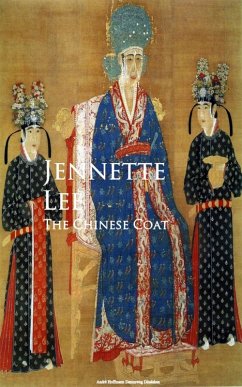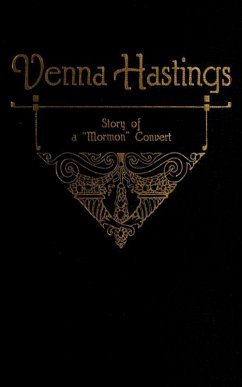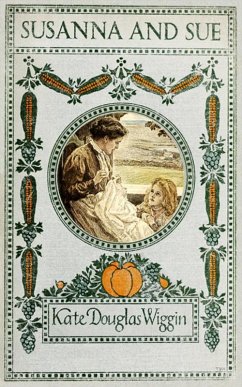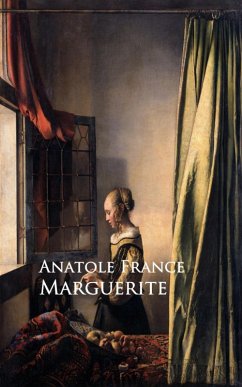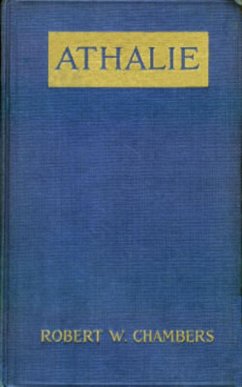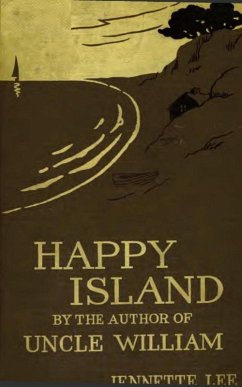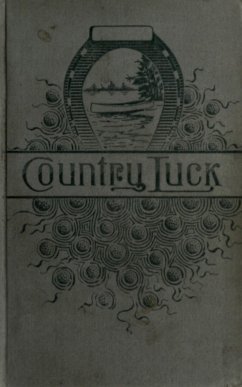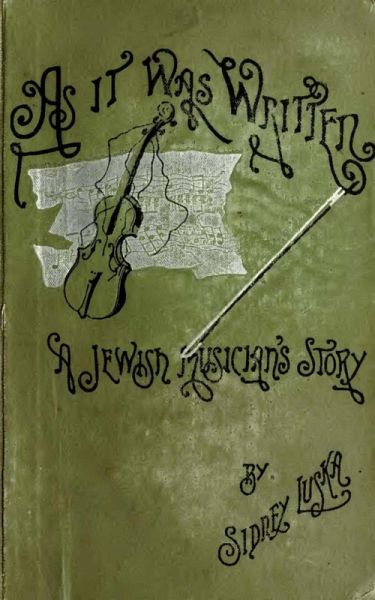
As It Was Written (eBook, ePUB)
A Jewish Musician's Story
Versandkostenfrei!
Sofort per Download lieferbar
0,99 €
inkl. MwSt.
Weitere Ausgaben:

PAYBACK Punkte
0 °P sammeln!
VERONIKA PATHZUOL was my betrothed. I must give some account of the circumstances under which she and I first met each other, so that my tale may be clear and complete from the beginning. For a long while, without knowing why, I had been restless-hungry, without knowing for what I hungered. Teaching music to support myself, I employed all of the day that was not thus occupied in practicing on my own behalf. My life consequently was a solitary one, numbering but few acquaintances and not any friends. In my short intervals of leisure I was generally too tired to seek out society; I was too obscu...
VERONIKA PATHZUOL was my betrothed. I must give some account of the circumstances under which she and I first met each other, so that my tale may be clear and complete from the beginning. For a long while, without knowing why, I had been restless-hungry, without knowing for what I hungered. Teaching music to support myself, I employed all of the day that was not thus occupied in practicing on my own behalf. My life consequently was a solitary one, numbering but few acquaintances and not any friends. In my short intervals of leisure I was generally too tired to seek out society; I was too obscure and unimportant to be sought out in turn. Yet, young and of an ardent temperament, doubtless it was natural that I should have been dimly conscious of something wanting; and, not prone to selfanalysis, doubtless it was also natural that I should have had no distinct conception of what the wanting something was. Besides, it would soon be summer. The soft air and bright sunshine of spring awoke a myriad vague desires in my heart. I strove in vain to understand them. They were all the more poignant because they had no definite object. Twenty times a day I would catch myself heaving a mighty sigh; but asking, "What are you sighing for?" I had to answer, "Who can tell?" My thoughts got into the habit of wandering away would fly off to cloud-land at the most inopportune moments. While my pupils were blundering through their exercises their master would fall to thinking of other things-afterward impossible to remember what. From morning to night I went about with a feeling of expectancy-an event was impending-presently a change would come over the tenor of my life. I waited anxiously, on the alert for its first premonitory symptom.
Dieser Download kann aus rechtlichen Gründen nur mit Rechnungsadresse in A, B, BG, CY, D, DK, EW, E, FIN, F, GR, H, IRL, I, LT, L, LR, M, NL, PL, P, R, S, SLO, SK ausgeliefert werden.







